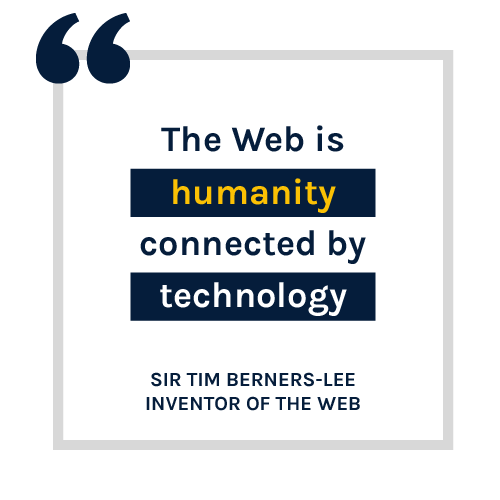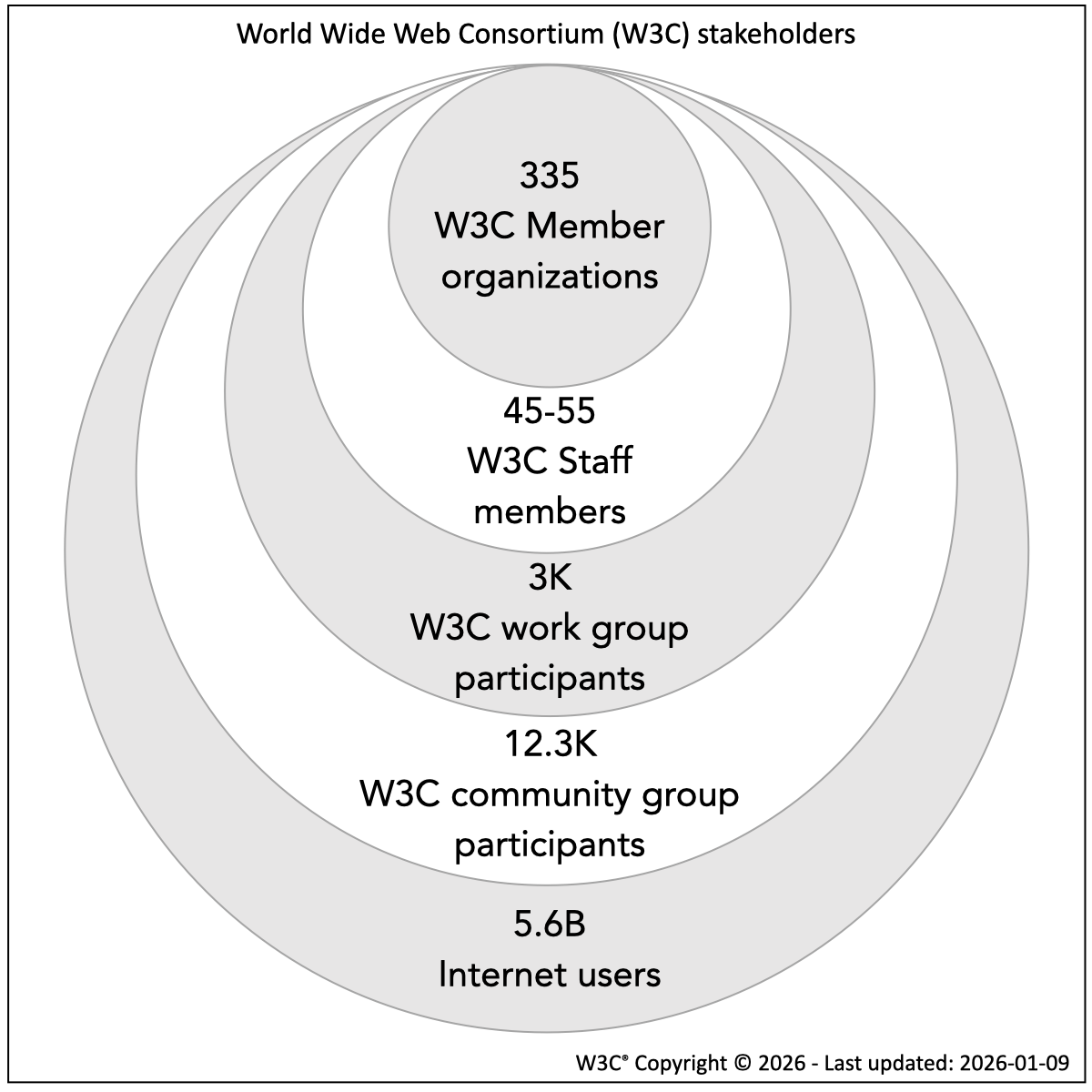Happy 25th anniversary, World Wide Web Consortium!
Today we celebrate the 25th anniversary of the World Wide Web Consortium. Sir Tim Berners-Lee, our Director and the inventor of the World Wide Web, founded the Web Consortium on this day, 1 October 1994 to ensure the long-term growth of the Web.
Since then we at the Web Consortium have led the Web to its full potential by convening industry, researchers, and the global community of Web developers to create freely available and open standards that ensure that the Web remains open, accessible, and interoperable for everyone around the globe. Software developers implement these standards in browsers, servers, blogs, graphic editors, search engines, and all the other software that powers the Web experience.
Web standards are blueprints for the digitally connected world.
Web standards are the building blocks that undergird the innovations that have transformed the Web as we know it, transformed the way we work, learn, socialize, manage our health, and even entertain ourselves.
Today, I'd like to break the apparent omertà and tell you more about the best kept secret in tech; much has been written about the Web, including by me and my colleagues, but not a lot about the World Wide Web Consortium itself.
Our open standards have an impact on billions of users, whether they realize it or not. Like Tim Berners-Lee himself, the World Wide Web Consortium is not a household name. Yet, we have earned recognition for our global impact: the Boston Globe ranked W3C the most important achievement associated with MIT in its first 150 years. Our organization has won two Emmy Awards: in 2016 for our work to make online videos more accessible with captions and subtitles, and again in 2019 for standardization of a Full TV Experience on the Web. The Web Consortium's impact even extends beyond this planet: NASA has used W3C standards in both the Spirit and Opportunity Mars rovers.
Some of the Web Consortium's most important contributions to the Web include:
- Hundreds of open technologies that support search engines, social media, trillions of dollars of online commerce, and more than a billion Web sites;
- Technologies and guidelines that enable people with disabilities to access the Web;
- Built-in support for communication in many of the world's languages;
- A Patent Policy that helps guarantee that W3C standards may be used by developers without payment of royalty.
We are a not-for-profit organization. Our revenues come primarily from Membership dues. Today, more than 450 Members from around the world lead development and implementation of Web technologies. Member revenues and some grants support a staff of 50 led by Director Tim Berners-Lee and CEO Jeff Jaffe.
Technologies that meet the varied needs of society do not happen by chance. They are designed and standardized, not by one company, country, or community, but through the work of the Web Consortium.
Our community extends far beyond our Membership. More than 11,000 developers worldwide participate in discussions to incubate new work. Standardization work at the Web Consortium is conducted in 30 working groups and a dozen interest groups. Our success depends on a number of factors:
- Our community must be diverse enough to represent a broad range of societal needs. Open, multi-stakeholder standards-making is a key part of digital technology infrastructure governance.
- Our stakeholders must trust that our staff and process support neutrality, fairness, quality, and efficiency. We have earned community trust in our 25 years. We continue to update our skills as facilitators and conveners, as well as our knowledge of industry requirements, user needs, and the evolution of technology.
- Adoption of W3C standards is voluntary, and so the world will only use them if they meet real-world needs, are of the highest quality, and are developed in a timely fashion.
2019 marks the year when half of the population is now online, the Web turned 30 and the World Wide Web Consortium celebrates its 25th anniversary. The Web has come a long way but myriad opportunities lay ahead. Our society, our world, and the Web face many challenges, and now more than ever the Web Consortium must continue to fulfil our mission, with our global community, to make the web work, for everyone.
In his open letter to the world, Sir Tim Berners-Lee stated:
"I remain committed to making sure the web is a free, open, creative space — for everyone. I want the web to reflect our hopes and fulfil our dreams".
With the help of our Members and our community, we have worked to create a Web that is accessible to all, whatever their hardware, software, network infrastructure, native language, culture, geographical location, or physical or mental ability; a Web that works for everyone, a Web which is good for all.
Today, I hope you join us in celebrating the 25th anniversary of the Web Consortium. As we will be re-introducing ourselves to our community with some history, pictures, web stories, tweets, and videos, we invite you to share your birthday wishes and to tell us your #webstories; we already have a few! So, what are your #webstories?


Happy 25th anniversary ... I hope to learn more about you.
Happy 25th anniversary WWW